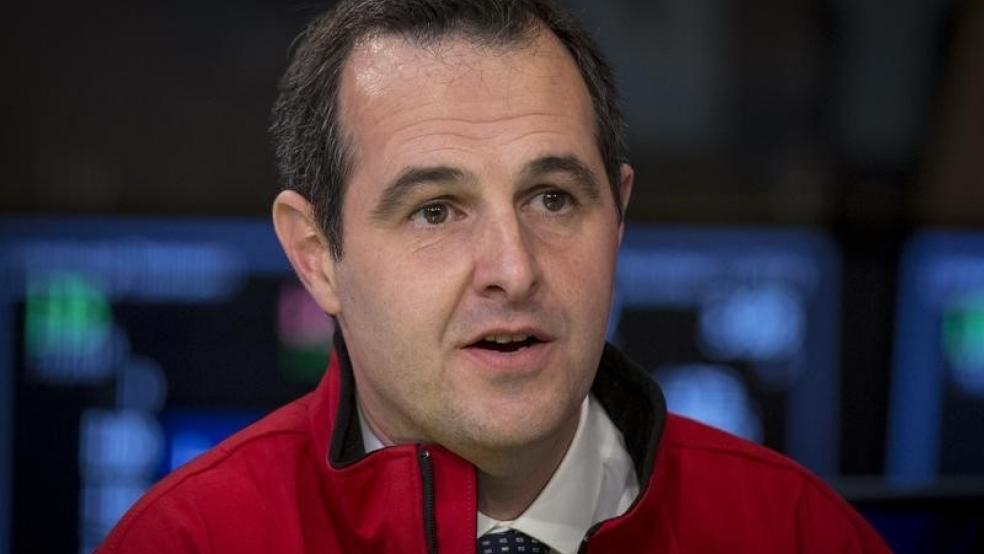(Reuters/IFR) - Renaud Laplanche, founder and chief executive of online lender Lending Club Corp, resigned after an internal probe found that the company had knowingly sold an investor $22 million of loans that the investor did not want, the company said on Monday.
Lending Club is by far the largest of the so-called marketplace lenders, which sell their consumer and small business loans on to investors, and it is considered by many investors and analysts to be the industry's standard bearer. The resignation adds to pressure on an industry already smarting from weakening investor appetite for its loans, increasing defaults and the possibility of heightened regulation. Lending Club's shares closed down 35 percent at $4.62 on Monday, leaving the company with a market capitalization of around $1.8 billion, about a fifth of its value when the company went public in December 2014."This development will surely spook bank purchasers who have become an increasing part of the company’s funding base, further frustrate the investment community, and ultimately result in stricter scrutiny from both federal and state regulators," said Isaac Boltansky, analyst at Compass Point research. Laplanche, a French entrepreneur who says he came up with the idea for Lending Club while reading his credit card statements while on vacation in 2006, is one of the highest-profile names in the nascent online lending industry."This is the godfather of the industry," said Peter Renton, who runs LendIt, a company that organizes online lending conferences. "It's hard to overstate how important he has been and his departure is going to be felt terribly."Lending Club named President Scott Sanborn interim CEO and director Hans Morris executive chairman.Three other senior managers also resigned or were fired in connection with the probe, the company said on Monday.Lending Club was the first company of its kind to go public. It attracted some top names to its board, including former U.S. Treasury Secretary Lawrence Summers.The company did not name the investor who originally bought the pool of loans at issue, but a source told IFR that it was Jefferies. The pool of near-prime loans was repurchased by Lending Club with no loss to the U.S.-based investment bank, the source said.The source spoke on condition of anonymity because the matter is private.Lending Club did not specify how the loans failed to comply with the investor's criteria, saying only that it was not related to credit or pricing. It was not immediately clear if Laplanche, also the company's chairman, was involved in what the company said was a violation of its business practices or if he resigned because the lapse occurred on his watch. The company declined to comment beyond its statement on Monday.Lending Club also said some employees had not informed the board of personal investments in a third-party fund at a time when the company was contemplating an investment in that fund.A person familiar with the matter told Bloomberg that the U.S. Securities and Exchange Commission is reviewing LendingClub’s disclosures. Up to Friday's close, Lending Club's shares had fallen about 29 percent since the start of the year as the market for alternative lending shows signs of weakness.MATERIAL WEAKNESSOnline lenders could be facing their toughest test yet as scrutiny by regulators and investors increases. Several platforms have reported slowing investment in their loans, and Prosper Marketplace - the second-largest marketplace lender behind Lending Club - cut more than a quarter of its staff last week.Lending Club's troubles will also likely weaken the securitization market, which has become a key source of revenue for the lenders, investors said."All of these things are definitely going to make investors ask for more scrutiny," one investor, who has bought previous securitization deals from marketplace lenders, told IFR.Lending Club also said it had identified material weaknesses in its financial reporting and would ask the SEC to extend the filing date for its quarterly report. The company will not provide guidance on its financial results. Morris said Lending Club repurchased the loans in question at par in early April and resold them at par to another investor."We also discovered during the investigation that a senior manager at Lending Club made a change in the application date of approximately $3 million of these loans," he told reporters on a conference call.Lending Club’s challenges occur as the industry prepares for new regulation expected to come down within 18 months, including proposals for more consumer protections. Regulation has been weak or nonexistent for online lending companies, as regulators and startups have been slow to collaborate on guidelines.“What we are witnessing now is a significant growing pain,” said Scott Robinson, vice president of fintech at the Plug and Play Tech Center, a tech startup accelerator in California where LendingClub was founded. “This highlights the importance of having self-regulation when you have a vacuum or a void of direction for new technology.” (Reporting by Michael Erman and Joy Wiltermuth at IFR in New York; Additional reporting by Heather Somerville in San Francisco, Sudarshan Varadhan and Richa Naidu in Bengaluru; Editing by Sayantani Ghosh and Matthew Lewis)Lending Club CEO resigns after internal probe, shares plummet

© Brendan McDermid / Reuters



